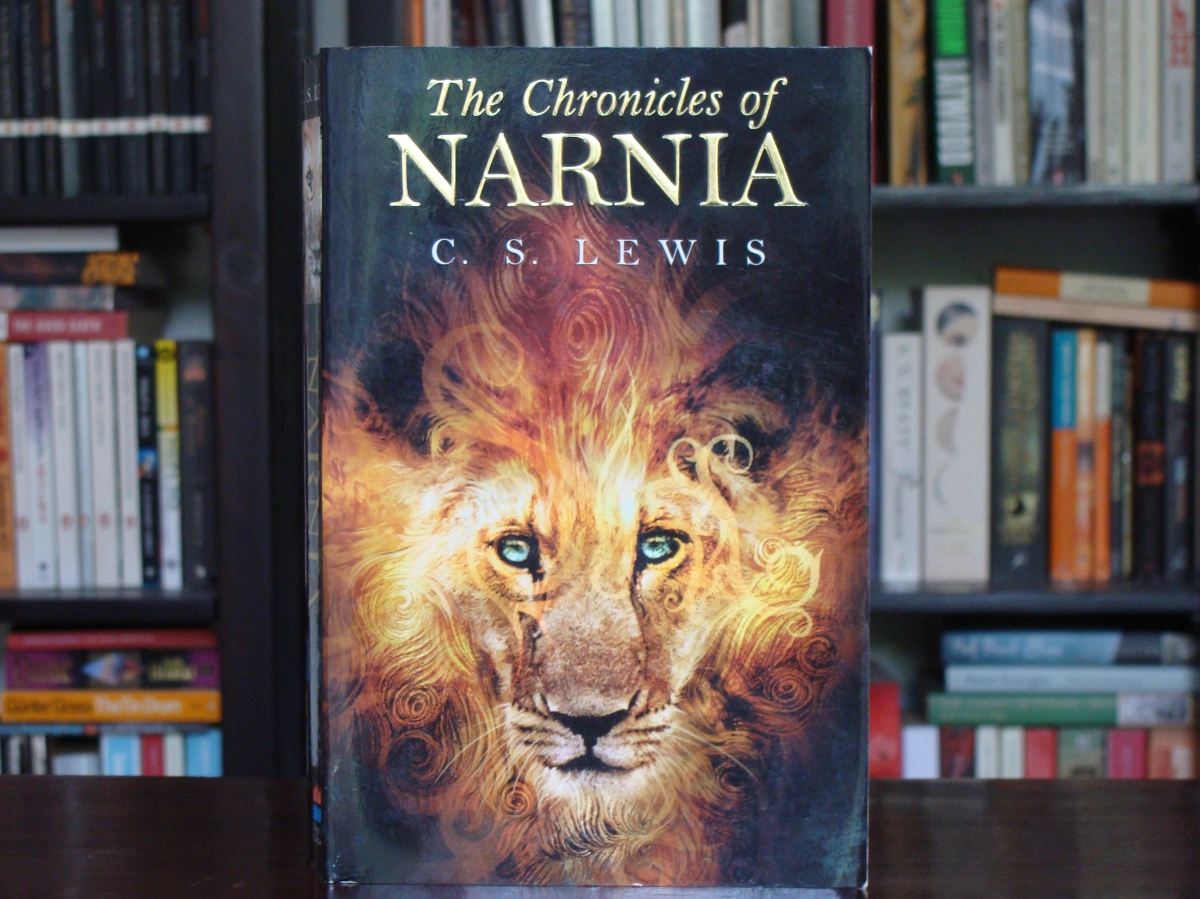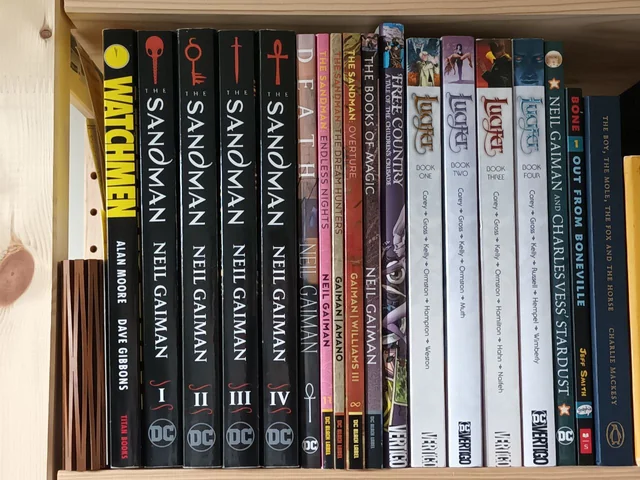Author Recommendations: Books That Have Influenced and Shaped Their Writing
Every writer has a unique journey, often shaped and inspired by the books they've read. From classics that ignite a passion for storytelling to contemporary works that offer new perspectives, the influence of books on authors is profound and multifaceted. In this article, we'll explore some renowned authors and the books that have significantly impacted their writing, offering insights into how these literary works have shaped their craft.


J.K. Rowling: The Chronicles of Narnia by C.S. Lewis
Influence on Rowling
- Magical Worlds: J.K. Rowling has often cited C.S. Lewis's The Chronicles of Narnia as a major influence on her creation of the Harry Potter series. The enchanting worlds and rich imagination in Lewis's books helped shape Rowling’s approach to world-building and fantasy storytelling.
- Themes of Good vs. Evil: The recurring themes of good versus evil in Narnia resonate strongly with the moral conflicts in the Harry Potter series. Lewis's exploration of bravery, friendship, and personal growth provided a foundation for Rowling's character development and plot structure.
Impact on Writing
- Creating Immersive Worlds: Rowling’s ability to create a detailed and immersive magical world in the Harry Potter series can be traced back to her appreciation for the imaginative landscapes crafted by Lewis.
- Moral and Ethical Dimensions: The moral lessons and ethical dilemmas presented in Narnia are reflected in the complex choices and character arcs in Rowling’s books.
Stephen King: The Works of Shirley Jackson
Influence on King
- Psychological Horror: Stephen King has often spoken about how Shirley Jackson’s The Haunting of Hill House influenced his own approach to psychological horror. Jackson’s ability to create an atmosphere of unease and suspense deeply impacted King’s writing style.
- Character-Driven Stories: Jackson’s focus on character development and the psychological depth of her protagonists inspired King to explore similar themes in his novels, making his characters’ fears and anxieties central to his horror narratives.
Impact on Writing
- Atmospheric Tension: King’s mastery of building suspense and psychological tension in novels like The Shining and Pet Sematary echoes the atmospheric and unsettling qualities found in Jackson’s work.
- Complex Characters: The depth and complexity of Jackson’s characters influenced King’s approach to character development, making his characters more multidimensional and relatable.
Margaret Atwood: The Handmaid’s Tale by George Orwell
Influence on Atwood
- Dystopian Themes: Margaret Atwood has acknowledged the influence of George Orwell’s 1984 on her seminal work, The Handmaid’s Tale. Orwell’s exploration of dystopian societies and totalitarian regimes provided a framework for Atwood’s examination of gender politics and societal control.
- Political Commentary: Orwell’s use of speculative fiction to critique contemporary politics inspired Atwood to address similar themes of oppression and resistance in her dystopian narratives.
Impact on Writing
- Dystopian Vision: Atwood’s depiction of a totalitarian society in The Handmaid’s Tale reflects the chilling possibilities explored in Orwell’s work, showcasing her ability to create compelling and thought-provoking dystopian worlds.
- Social Critique: The political and social commentary in Atwood’s writing often mirrors Orwellian themes of surveillance, control, and rebellion, demonstrating the profound impact of Orwell’s vision on her own storytelling.
Haruki Murakami: The Great Gatsby by F. Scott Fitzgerald
Influence on Murakami
- Exploration of Alienation: Haruki Murakami has often cited F. Scott Fitzgerald’s The Great Gatsby as a significant influence on his work. Fitzgerald’s exploration of themes such as alienation, the American Dream, and the pursuit of identity resonates with Murakami’s own thematic interests.
- Narrative Style: The lyrical prose and fragmented narrative style of The Great Gatsby have influenced Murakami’s approach to storytelling, contributing to his distinctive narrative voice and structure.
Impact on Writing
- Thematic Depth: Murakami’s novels, such as Norwegian Wood and Kafka on the Shore, often explore themes of loneliness, identity, and existential searching, reflecting the influence of Fitzgerald’s thematic explorations.
- Narrative Experimentation: The innovative narrative techniques and rich imagery in Fitzgerald’s work can be seen in Murakami’s writing, which frequently blends realism with surrealism.
Toni Morrison: Beloved by William Faulkner
Influence on Morrison
- Stream of Consciousness: Toni Morrison has credited William Faulkner’s As I Lay Dying and The Sound and the Fury as key influences on her use of stream-of-consciousness narration. Faulkner’s experimental narrative techniques inspired Morrison’s innovative approach to storytelling.
- Historical and Cultural Depth: Faulkner’s deep exploration of the Southern experience and history informed Morrison’s own focus on African American history and culture in her novels.
Impact on Writing
- Narrative Complexity: Morrison’s use of non-linear storytelling and multiple perspectives in novels like Beloved reflects the narrative experimentation found in Faulkner’s work.
- Cultural Resonance: The emphasis on historical and cultural context in Morrison’s writing draws on the rich, historical depth of Faulkner’s Southern setting, contributing to her exploration of African American heritage.
Neil Gaiman: The Sandman by Alan Moore
Influence on Gaiman
- Fantasy and Mythology: Neil Gaiman’s The Sandman series was significantly influenced by Alan Moore’s work in the comics genre, particularly Moore’s complex world-building and incorporation of mythology.
- Genre Blending: Moore’s innovative blending of genres and mythological elements inspired Gaiman to craft his own unique blend of fantasy, horror, and folklore in The Sandman.
Impact on Writing
- Mythological Integration: Gaiman’s ability to weave mythological and fantastical elements into his storytelling reflects Moore’s influence, evident in works like American Gods and The Sandman series.
- Genre Innovation: The genre-blending and narrative experimentation pioneered by Moore are mirrored in Gaiman’s approach to creating rich, multi-layered stories that defy conventional genre boundaries.


Books that influence authors often become touchstones in their creative journeys, shaping their writing styles, themes, and narrative approaches. From classic works of fiction to groundbreaking contemporary texts, the impact of these influential books can be seen in the rich tapestry of an author’s body of work. By exploring the literary influences behind some of today’s most celebrated writers, we gain a deeper understanding of how literature shapes creativity and storytelling.












